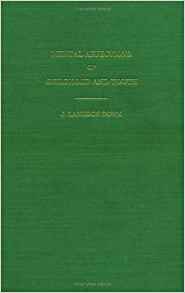

 |

|

The average rating for On some of the mental affections of childhood and youth based on 2 reviews is 3 stars.
Review # 1 was written on 2011-12-11 00:00:00 Bee Ladd Bee LaddVery decent summary of jazz in the 1980s. Recommended for jazz fans. |
Review # 2 was written on 2012-12-25 00:00:00 Edward Thomas Edward ThomasIt is a remarkable fact that the year of 1917 was unusually rich in events that left an indelible mark in our recent history. Of these, two are the subject matter of this book: Jazz, my favorite kind of music, was first put on record in a 78 rpm disc by the Original Dixieland Jazz Band recorded in New York City in the 26th of February. Two weeks later, on the other side of the Atlantic, and at the far end of a war torn continent, an unorganized protest against bread shortages in Petrograd (St. Petersburgh) resulted in the overthrown of the Romanov dynasty in Russia and quickly grew into a full-blown Revolution resulting in what was arguably the most important and influential single event in the 20th Century: the Bolshevik coup, better known to history as the October Revolution. It is the history of the interrelation between Jazz music, its practitioners and fans, on one side, and the regime that came to power following October, on the other, that is the subject of this book. And what a fascinating and convoluted history it is! Due to World War I, the 1917 Revolutions, the Civil War and foreign intervention, jazz arrived in Russia rather late when compared with West European countries: from 1917 several American groups (both civilian and military) toured England, Belgium, France, but jazz did not reach Russia until 1922, and even then introduced by a Russian jazz fan: the Futurist poet, Dadaist, dancer, editor, and temporary exile in Paris, Valentim Parnakh. The way jazz thrived under communist Russia was not independent of the general political climate affecting the arts and other intellectual activities, but was also dependent upon local patronage by party bosses that happened to be, or not, jazz fans. Also, along the years, one gets conflicting doctrines about jazz as a "decadent capitalist music" or as a music of America's "black proletarians". Both sides of the ideological debate could turn out to be rather pathetic: not only the staunch jazz bashers of the Association of Proletarian Musicians, and the intelectual éeminence grise of the regime, Maxim Gorky, but also those defending jazz as a proletarian music, could engage in endless literary polemics about the music without really listening much to the real thing (certainly this was the case of the jazz apologist Marietta Shaginian that brilliantly expounded the proletarian origins of jazz, and defended the music, but was almost completely deaf...) So, the fine line separating (?!) authentic "proletarian jazz" from its "bourgeois corruption" became, not so strangely, the gray zone where fans and musicians could negotiate the political limits of their art, and, considering the fact that jazz (swing) became a rather popular dance music by the 1930's and 1940's, it really allowed for a big expansion of the music during most of Stalin's era. The tragic part of the story is that in the increasingly autocratic regime following the NEP years, polemics about abstract concepts like music rarely kept at a literary level, and so, at some points, notably during the Great Purges of the late thirties, and at the very end of Stalin's life, after the end of the War, the general repressive climate in the USSR had consequences to jazz that were no different than those in the rest of Soviet society. What is really interesting is that, on occasions, and notably during the War years, a huge number of Russian jazz orchestras were in existence, some semi-independent, others under the patronage of Federal, State, or Local governments, or the Armed Forces. Some of these orchestras were directed by first rate conductors and musicians that achieved notoriety in the Soviet Union and even abroad, like Alexander Tsfasman, Alexander Varlamov, Leonid Utesov, and the amazing case of the head of the State Jazz Orchestra of the Belorussian Republic, the German-Jewish exile Eddie Rosner (the "white Louis Armstrong"), one of the most successful jazzmen of the USSR. In the case of these four famous jazzmen, the paucity of commercial recordings currently available to jazz fans (at least outside Russia) is compensated by the existence of an excellent website containing a large amount of Real Audio files and other useful information. However, for an indepth analysis of Jazz in the Soviet Union in all its phases down to the end of the seventies, this book remains the main work available in English, and the author's lively style, at times funny, in other occasions bitter, always results in an enlightened narrative. |
CAN'T FIND WHAT YOU'RE LOOKING FOR? CLICK HERE!!!